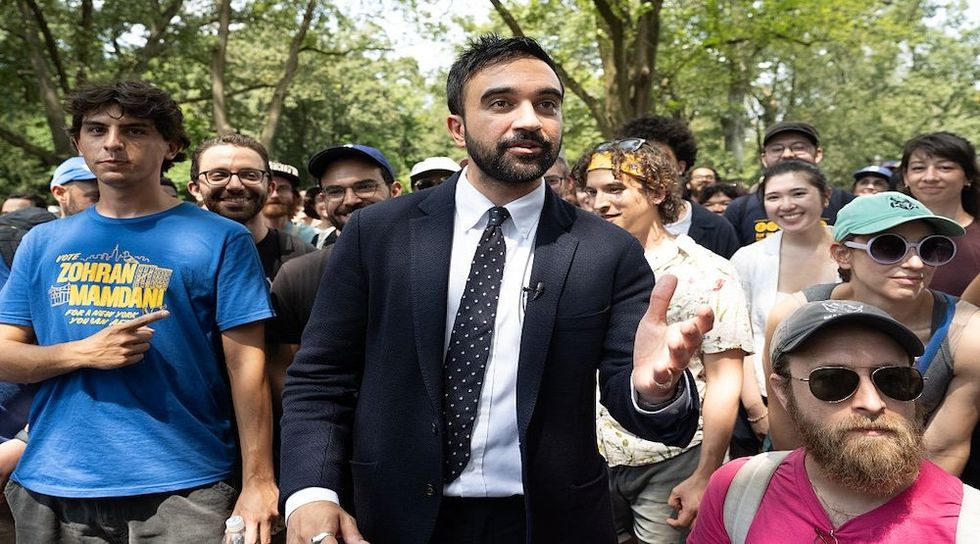Socialist Zohran Mamdani’s shocking upset win in June’s Democratic primary for New York City mayor lit up the progressive base while alarming moderates, city residents, and anyone wary of his blend of raw collectivism and pointed racial politics. What few have examined is how that unstable mix carries the seeds of its own collapse.
Collectivism as an economic philosophy is not new. More than a century of evidence shows the consistent failure of its modern form.
The cultural and economic Marxism animating today’s progressive left is a dog’s breakfast of demands promoted in the name of the ‘oppressed.’
Every modern “market” economy includes socialistic features: government ownership or control of production, progressive taxation, industrial regulation, welfare programs, and other redistributive policies. These operate like dials on a control panel, adjusted up or down depending on who holds power. Push the collectivist dials too far, and the system shifts along a spectrum toward central control.
The persistence of collectivism reflects blind faith in what people think should work rather than what does. When the dials turn high, the results almost always damage the human condition. The rare cases of relative success appear in small, culturally homogenous, high-trust societies — and even there, private initiative and meritocracy remain essential.
The Scandinavian paradox
Progressives love to point to Scandinavia as proof that “socialism works.” Yet the Scandinavian collectivist model actually confirms its limitations, both in its successes and failures.
By the 1990s, these countries reached the limits of their mixed-economy “Nordic Model” after a period of postwar public-sector expansion. Economic reforms and deregulation followed.
What makes their experiment more sustainable than in larger, more diverse nations is not socialism itself but historic cultural cohesion. Until recently, Scandinavia was defined by small size, strong national identity, and ethnic homogeneity. That cohesion has frayed under decades of refugee inflows, prompting reversals. Denmark, for example, has now adopted tougher asylum policies after decades of rising immigration.
Mamdani’s contradictions
That cohesion is absent in New York, which makes Mamdani’s platform especially volatile. His campaign combines extreme economic policies such as rent freezes, government-run grocery stores, and dramatic minimum wage hikes with unabashed racialism. He refused to disavow calls to “globalize the intifada” and openly proposed higher property taxes on “richer and whiter” parts of the city.
The cultural and economic Marxism animating today’s progressive left is a dog’s breakfast of demands promoted in the name of the “oppressed” and seeks to “decolonize” all evidence of Western civilization from modern life. Like most insurgent collectivist movements, the progressive left is united more by what it is against — Enlightenment rationalism, free markets, individual liberty, Judeo-Christian values — than by any coherent program.
RELATED: Stop calling Zohran Mamdani a communist — he’s something worse
 Photo by Stephanie Keith/Getty Images
Photo by Stephanie Keith/Getty Images
At its core, socialism is universalist. It assumes citizens will treat one another as extended family, placing altruism above self-interest. The moment people recognize differences — between groups or individuals — that illusion collapses. True solidarity, homogeneity, and “equality of outcome” demand the suppression of individuality. That’s why the progressive left abandoned “equality” for “equity.” Equality allows for individual difference. Equity enforces uniformity.
Mamdani’s platform exposes collectivism’s core flaw: Solidarity cannot survive out-groups. Once Jews, whites, capitalists, or any other group are branded outsiders, cohesion breaks down. History records what comes next — kulak liquidation in Russia, mass starvation in Mao’s China, the slaughter in Rwanda. Unless the targeted group is small and easily crushed, socialism inevitably devolves into zero-sum tribalism.
Socialism or tribalism?
Despotic totalitarianism is unlikely at the municipal level in an otherwise free country. But the contradictions of Mamdani’s “tribal socialism” in a multiethnic, heterodox city will bring something else: disappointment, unmet promises, and needless misery. New York’s quality of life will further erode as radical ideology collides with social fragmentation.
If Mamdani wins, the only question is which outlasts the other — socialism or tribalism. History offers the answer. Tribalism survives. And it leaves behind a bitter coda to the American creed that “all men are created equal.”
Click this link for the original source of this article.
Author: Richard J. Shinder
This content is courtesy of, and owned and copyrighted by, http://theblaze.com and its author. This content is made available by use of the public RSS feed offered by the host site and is used for educational purposes only. If you are the author or represent the host site and would like this content removed now and in the future, please contact USSANews.com using the email address in the Contact page found in the website menu.




